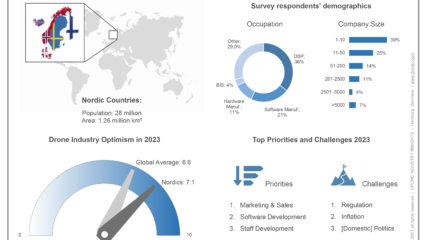South Africa bans drone fishing

A high court judge in South Africa has upheld the ban on drones and other motorised devices from angling expeditions, in a blow to the fortunes of a section of the fishing community in the country.
The ruling was made on Tuesday by Judge Tshifiwa Maumela, following an urgent application by Gannet Works, IARC, Unmanned SA, CDS Angling Supplies and CEG Projects, who were protesting a public notice by the Department of Forestry, Fisheries and the Environment (DFFE) banning the use of motorised accessories in angling expeditions.
In the public notice on February 24 this year, the Deputy Director Fisheries Management in the DFFE, Sue Middleton, announced the ban on drones and related fishing cavalry, sighting the Marine Living Resources Act, which the department argues prohibits the deployment of motorised devices to catch fish.
“It has come to the attention of the Department of Forestry, Fisheries and the Environment that a variety of motorised devices, such as, but not limited to, bait-carrying drones, bait-carrying remote-controlled boats and other remotely operated vehicles, as well as motorised electric reels are used by recreational anglers to illegally catch fish as well as sharks,” the notice said.
“These devices are prohibited for use of angling in terms of the Regulations promulgated in terms of the Marine Living Resources Act, 1998 (Act No. 18 of 1998) (“MLRA”).
“In terms of the Regulations, “angling” means recreational fishing by manually operating a rod, reel and line or one or more separate lines to which no more than ten hooks are attached per line. Therefore, it is clear that angling is limited both from shore and from vessels, to fishing by manually operating a rod, reel and line.”
Anglers use drones to carry baited lines into areas that the anglers themselves would otherwise find hard or impossible to physically access; and for surveillance and reconnaissance purposes, where the drones are used to identify optimal areas for fishing, like fish aggregations or essential fish habitat.
This, according to the DFFE, gives the anglers an unfair advantage over the fish.
“The Department is concerned about the conservation status of several shark and fish species targeted by these illegal methods. The motorised devices give anglers a huge advantage over those that confine themselves to traditional angling methods as provided for by the law. With the aid of these devices, anglers are able to catch large breeding fish with a much higher success rate than when confined to manual methods and in so doing unduly increase the pressure on already threatened species.
“Recreational angling is an activity that can be enjoyed by all South Africans, regardless of socio-economic status. The Regulations that govern recreational fishing were designed to limit the cumulative impact of this activity and to ensure that it remains sustainable, ethical and with minimal adverse impact on our aquatic environment.
“The purpose of this Public Notice is to alert recreational anglers and suppliers of fishing equipment that the Department intends to rigorously enforce the Regulations that govern recreational angling and ensure offenders are prosecuted and sentences accordingly. The Department will also seize the various illegal devices used and upon any successful conviction will seek an order from the court to have these devices forfeited to the state.
The fishing community is not amused though; they argue that the notice has put many livelihoods in danger, especially the lives of drone anglers and their stakeholders who live solely on earnings they get from drone fishing.
As a result, they filed an urgent application with the Gauteng High Court asking for the following:
- That a declaratory order be issued declaring that the use of bait carrying drones, bait carrying remote controlled boats and other remotely operated devices are not prohibited in terms of the Marine Living Resources Act, 18 of 1998 and the regulations published pursuant thereto.
- That the First Respondent (The Deputy Diretor General Fisheries Management) is directed to publicly withdraw the public notice which was published on 24 February 2022 within ten days of the granting of this order.
- That in the withdrawal of the public notice the First Respondent publicly declares that the content of the public notice of 24 February 2022 is incorrect and that the said public notice is of no legal effect or consequence.
- That the Respondents are directed to pay the Applicants’ costs, and such costs include the costs consequent upon the employment of two counsel.
As of now, it is a battle the fishing community has lost, as Judge Maumela dismissed their application with costs, ruling that the act under which the ban was effected allowed to minister to make proclamations through a notice or any regulation.
The applicants do not agree still, and are planning on appealing against the latest ruling.









0 Comments